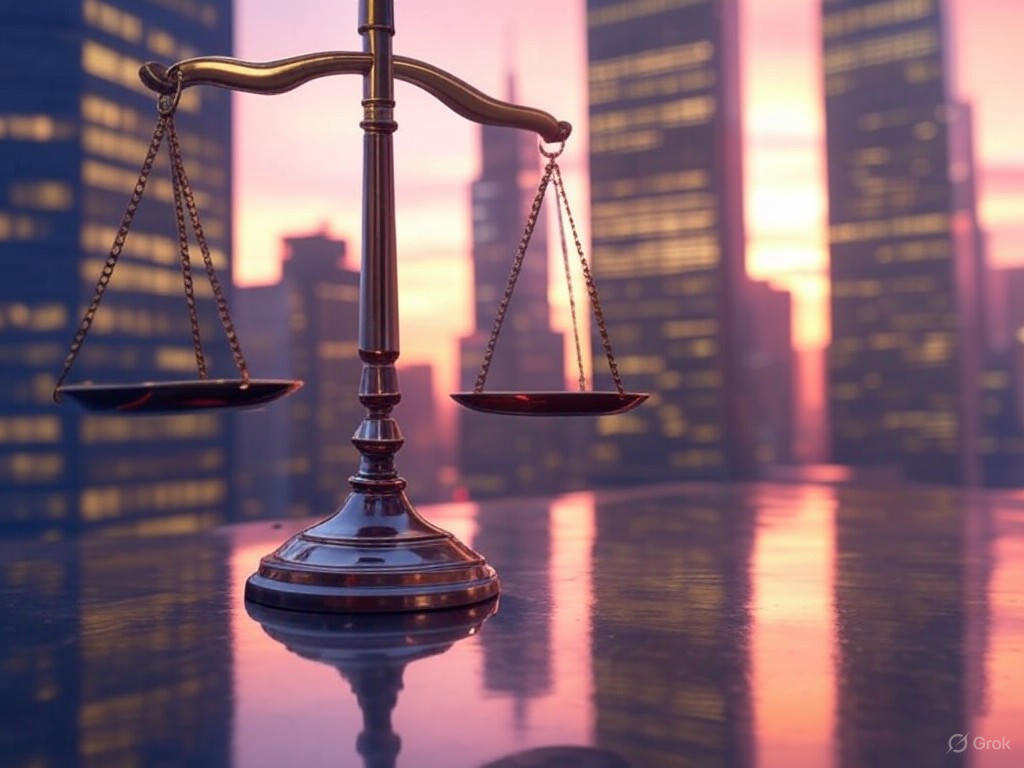
Trump Due Process Stance: Uncertainty in Recent Interview
Introduction to Trump’s Due Process Uncertainty
Trump due process has become a focal point of heated discussions lately. Think about how the Fifth Amendment promises fair treatment for everyone on U.S. soil, regardless of who they are. In a recent interview, former President Donald Trump left many questioning his commitment to these foundational rights, stirring up debates on everything from immigration policies to the limits of executive power. This ambiguity isn’t just political noise—it’s a real wake-up call for how we protect democratic principles in today’s divided climate.
Trump’s Comments: Unpacking the Ambiguity
During his appearance on NBC’s Meet the Press, Trump faced tough questions about upholding due process, and his responses painted a picture of hesitation. When asked if he’d ensure Trump due process for all, he deferred to his legal team, saying something like, “I don’t know—they’ll follow what the Supreme Court decides.” It’s a moment that made viewers pause, as this kind of uncertainty from a former leader can feel unsettling. Have you ever watched an interview where a simple question reveals deeper issues?
For context, Trump’s administration often pushed the boundaries of immigration enforcement, so this exchange wasn’t out of the blue. He emphasized relying on “brilliant lawyers” to navigate constitutional waters, but critics argue that’s dodging a core responsibility.
Key Quotes and Their Implications
- On constitutional obligations: Trump stated, “I don’t know… I have brilliant lawyers that work for me, and they are going to obviously follow what the Supreme Court said.” This highlights a potential gap in due process uncertainty that could affect policy decisions.
- When pressed about extending due process to everyone, he sidestepped with mentions of legal interpretations, leaving room for interpretation and concern.
These quotes aren’t just soundbites; they’re windows into how Trump due process might play out in real scenarios. Imagine a family facing deportation without a fair hearing—it’s scenarios like this that make these discussions so urgent.
Constitutional Foundations: Why Due Process Matters
The Fifth Amendment is clear: No one loses life, liberty, or property without due process. This principle applies to all persons in the U.S., not just citizens, as upheld by numerous Supreme Court rulings. But when figures like Trump express doubt, it challenges this bedrock. Let’s break it down—due process ensures fairness, like giving someone a chance to defend themselves before action is taken.
It’s not just abstract; think about historical cases where these rights prevented injustices. For instance, during past immigration crackdowns, courts stepped in to protect individuals from hasty decisions.
Recent Legal Developments Shaping Trump’s Due Process Views
- Dissenting Supreme Court opinions have flagged issues with executive actions that bypass due process, such as quick deportations without proper challenges.
- Federal courts continue to intervene, ensuring that even in urgent situations, basic rights aren’t overlooked. This ongoing tug-of-war shows how Trump due process uncertainty could influence future rulings.
If you’ve followed these cases, you know they’re more than legal jargon—they’re about real people’s lives. What if your rights hinged on a leader’s vague stance?
Due Process in Immigration Enforcement
Trump due process often intersects with immigration, where his policies leaned toward rapid deportations. The question is, can we balance security with constitutional protections? His administration’s aggressive approach clashed with court mandates, highlighting the tension between speed and fairness.
For example, imagine border agents making split-second decisions without hearings—it sounds efficient but risks errors that upend lives. Advocacy groups warn that weakening these rights for immigrants could erode them for everyone.
Public Opinion: How People View Trump’s Due Process Approach
- Polls show waning support for Trump’s immigration tactics, with many worried about the trade-off between safety and rights.
- Experts argue that ignoring due process sets a slippery slope, potentially affecting civil liberties across the board.
This public pushback is telling. If surveys are any guide, folks are starting to question whether due process uncertainty in leadership aligns with American values we hold dear.
Contradictions and Growing Criticism
Critics have pounced on Trump’s comments, seeing them as part of a larger pattern of prioritizing results over rules. Legal experts point to instances where his policies led to detentions or deportations that ignored court orders, fueling debates on executive overreach. It’s hard not to see the irony—someone sworn to defend the Constitution expressing doubt about it.
“It has long been evident from his actions that President Donald Trump does not respect the constitutional principle of due process. And now, he has admitted it himself.” — Mother Jones
This quote captures the frustration many feel. In a hypothetical scenario, if a business owner faced sudden asset seizure without review, they’d demand due process—so why should it be different for others?
Broad Implications for American Democracy
The ripple effects of Trump due process uncertainty extend far beyond one interview. Our system of checks and balances relies on leaders upholding the Constitution to maintain trust in democracy. When that’s questioned, it can erode public confidence and set dangerous precedents.
Consider how this plays into everyday life: If basic rights feel shaky, people might hesitate to speak out or engage in civic activities. It’s a reminder that democracy thrives on clarity and commitment.
Potential Risks of This Uncertainty
- Precedent Setting: Eroding due process for specific groups could lead to wider rights violations down the line.
- Executive Overreach: Vague stances might embolden future administrations to push limits, creating instability.
- Public Anxiety: When leaders waver, it breeds confusion, making people wonder if their protections are secure.
These risks aren’t theoretical; they’re already playing out in policy debates. How can we, as a society, ensure these guardrails stay strong?
Comparative Insights: Trump’s Stance Versus Constitutional Ideals
| Aspect | Trump’s Position | Constitutional Standard |
|---|---|---|
| Due Process for All | Uncertain, often deferred | Mandatory for everyone under the Fifth Amendment |
| Oath to Uphold Constitution | “I don’t know” | Explicit duty to protect and defend |
| Handling Deportations | Advocated for expedited actions | Requires legal review and challenges |
This table illustrates the contrasts clearly, showing how Trump due process uncertainty diverges from established norms. It’s a straightforward way to see the potential conflicts at play.
Expert Views: Navigating Legal Responses
Scholars and lawyers are sounding the alarm on how Trump due process comments could impact the judiciary’s role. Courts have historically served as a bulwark against executive excesses, ensuring fair hearings before any deprivations. Recent decisions reinforce that the government must provide opportunities for defense, no matter the context.
For a real-world example, look at cases where immigrants won appeals due to due process violations—it underscores the system’s intent. If you’re interested in diving deeper, a study from the Columbia Law Review offers valuable insights on these dynamics.
Wrapping Up: The Bigger Picture of Due Process
In the end, Trump due process uncertainty isn’t just about one person or policy—it’s a barometer for our democracy’s health. As we head into elections and beyond, protecting these rights will define how we handle immigration, justice, and equality. It’s a call to action for all of us to stay informed and engaged.
So, what are your thoughts on this? Have you noticed similar themes in current events? Share your views in the comments, explore more on our site, or spread the word to keep these conversations alive.
References
- Pittsburgh Post-Gazette. “Trump on Meet the Press Interview.” Link.
- Mother Jones. “Trump’s Approach to Constitutional Rights.” Link.
- OPB. “Does a President Need to Uphold the Constitution?” Link.
- U.S. Supreme Court. “Opinion, 24A931 Trump v. J.G.G.” Link.
- John Andrews Blog. “Link.” Link.
- Additional sources include Columbia Law Review and ACCC reports for broader context.
Trump due process, constitutional rights, due process uncertainty, Trump interview, presidential authority, immigration enforcement, Fifth Amendment protections, executive overreach, democratic principles, legal debates






